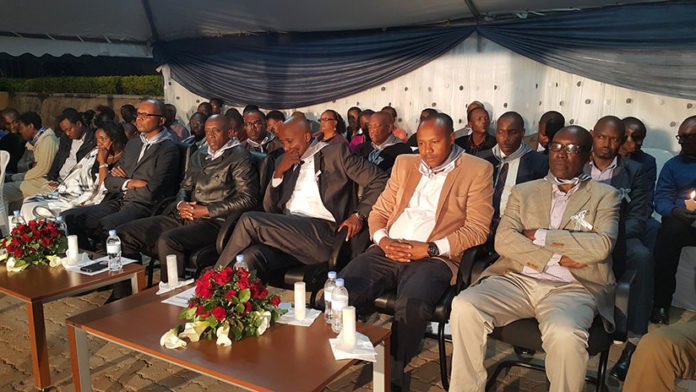
Local Government minister Francis Kaboneka has called upon media practitioners to promote national values while going about their work, and always bear in mind the role the industry played during the 1994 Genocide against the Tutsi.
Minister Kaboneka made the remarks Wednesday at Rwanda Broadcasting Agency, during a vigil to commemorate the 60 journalists who were killed during the Genocide against the Tutsi.
He said freedom of press is guaranteed in Rwanda as long as journalists enjoy it responsibly, reminding them of the Radio-Télévision Libre de Mille Collines (RTLM) and other extremist media outlets that incited the public during the Genocide.
The venomous RTLM was used by the then-government as a genocide weapon to indoctrinate the masses against Tutsi who were dubbed cockroaches that Hutu needed to get rid of at any cost.
Kaboneka said “a journalist Rwanda needs is one who promotes national unity in the country’s reconstruction process, and not that one who sows hatred among citizens.”
Veteran journalist Justin Mugabo, the owner of Isango Star Radio and Isango TV, shared with mourners his humbling journey to escape from perpetrators who killed over one million people in three months.
He stressed the need for a professional media sector that is never manipulated by foreigners for their selfish interests, saying the media – also referred to as the Fourth Estate – should have at heart the interest of the country.
At the time, he had a newspaper called Kiberinka through which he used to criticise the then ruling party’s political agenda to stigmatise and kill Tutsi, he said.
“As Tutsi journalists, we were always awaiting death,” Mugabo told mourners, adding that their dissenting voices were another reason for killers to attack them. But the fear of death didn’t supersede their conviction to stand for truth, he said.
Mugabo managed to escape to the safe hands of Rwanda Patriotic Army in Mulindi, Gicumbi, leaving behind his family members, 68 of which were killed.
Kaboneka commended the efforts of Mugabo and other journalists who condemned the Genocide through their publications. “Their legacy remains intact,” he said.
The vigil was attended by members of the local media fraternity, families and friends of journalists who were killed, many of whom were working with the Rwanda Bureau of Information and Broadcasting (ORINFOR) that was later disbanded to create the current Rwanda Broadcasting Agency.
Written by Janvier Popote, originally published by The New Times.















